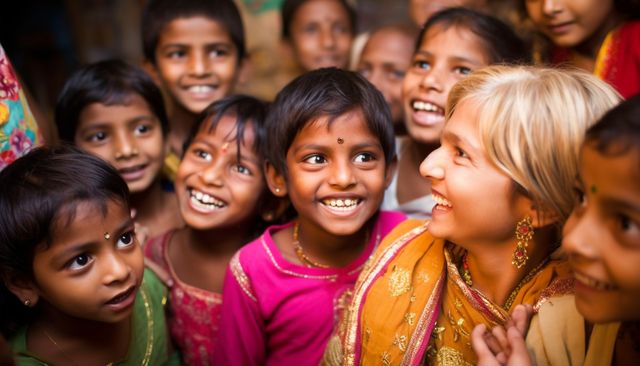Government’s decade-long assault on NGOs cripples aid efforts and policymaking
In a worrying trend that threatens the fabric of India’s civil society, the government’s sustained crackdown on non-governmental organizations (NGOs) is causing widespread concern. India’s civil society, a robust and vital sector comprising over 200,000 registered NGOs, has been a cornerstone in the nation’s development, offering crucial services to millions of its poorest citizens. These organizations, ranging from small local groups to extensive networks with a nationwide reach, have historically played a pivotal role in India’s progress, from aiding in the country’s struggle for independence to implementing transformative anti-poverty initiatives.
The contribution of NGOs to India’s social and economic development cannot be overstated. Organizations like Care India have provided essential public health education and services to women and girls, reaching an impressive 84 million people in the 2021-22 period alone. Think tanks and research institutions, such as the Centre for Policy Research (CPR) in Delhi, have been instrumental in crafting policies that have positioned India as a pioneering laboratory for anti-poverty experiments. Moreover, registered NGOs, which represent only a fraction of the total number of civil society groups, are estimated to employ around 2.7 million people, highlighting their significance as a major employment sector.
Embed from Getty ImagesHowever, this vibrant ecosystem is under siege. The Bharatiya Janata Party (BJP) government has launched a decade-long assault on the sector, jeopardizing not only the livelihoods of millions of Indians but also the very process of policymaking in the country. This crackdown, characterized by stringent regulatory measures and a hostile operating environment, risks eroding the achievements of decades of civil society efforts. It undermines the ability of NGOs to serve as a check on state power, compensate for governmental shortcomings, and deliver vital services to those in need.
The repercussions of this ongoing attack are manifold. Beyond the immediate impact on the NGOs’ ability to operate effectively, the crackdown poses a broader threat to the democratic fabric of India. By stifling the voices of civil society and restricting the space for independent action and critique, the government’s actions could have long-lasting detrimental effects on India’s social and political landscape.
The situation calls for urgent attention and action from both national and international stakeholders. There is a need for dialogue and engagement between the government and the civil society sector to ensure that NGOs can continue their critical work without undue interference. The stakes are high, as the well-being of millions of India’s poorest citizens and the health of its democracy hang in the balance.
